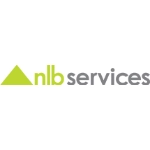© 2025 Next Level Business Services Inc. All Rights Reserved.
Tips to Negotiate Your Salary with HR
By NLB Services
Think about the time you bought your first car – did you negotiate the price in the showroom? We are sure you must have tried bargaining on fittings and features like extra services or for an extended warranty. Or maybe you are like many other people who have paid the sticker price just to avoid confrontation.
Similarly, the mere thought of having to negotiate anything during the interview for your salary can make you tense. If you did not get the best compensation from an HR in your last interview, we have excellent tips on how to negotiate salary with an HR during your next interview. Follow along because we’ve put together a list of useful tips on how to nail salary negotiation with HR in your next salary conversation.
Preparing for Salary Discussion With HR
While the tables might seem turned towards the employer’s favor in most cases, employees still can do much more when it comes to salary negotiations. Salary negotiation is just one of these steps an employee can take. The stats concerning salary negotiation in a recent survey of 1,000 employees between 18 to 34 revealed that 57.2% of them have never tried to negotiate their salaries.
And only 8% of them have refused to agree to settle with the offer. As they were quite satisfied with the current compensation. 6% of them refused the offer because they did not know how to negotiate. 10.4% of them avoided negotiating their salaries for fear of losing their job offers.
But the question arises why negotiate the salary in the first place? Not negotiating your salary can cost you dearly. In the process of salary discussion with hr in interview, settling for anything lower than your expectations and worth can affect your mental peace and can affect your self-esteem. Also, there’s a common saying that you get what you want only when you ask for it, upfront! Nothing comes served on a plate on its own.
Now that we have told you the significance of how a healthy salary negotiation can impact your overall growth, it is time to roll up your sleeves and talk with the employer. Impactful salary negotiation can always work in your favor when conducted via email. Writing an email allows time to put forth your thoughts politely. Whereas, in a telephone conversation, you might end up saying what you never intend to and you might lose the opportunity of getting the job. In a telephonic conversation, there are also chances of missing out on your best answer or worse, divulging a piece of information that you didn’t wish to. You may then end up justifying what you’ve just said.
Thus, it is always advisable to do a salary negotiation over an email to serve your counteroffer. Email is a communication medium that allows the recruiter to consider your request at their comfort vs. having to answer immediately on call.
Tips for Salary Negotiation with HR
Don’t undervalue yourself
Companies always ask about your salary expectations. When your expected salary offer is rejected, do not lose confidence during salary discussion with hr in an interview. Try explaining to the employer with a valid and sensible reason why you need such a hike in your salary. But do not undervalue yourself if your expected salary demand is rejected. Never undervalue or overvalue yourself. Find the right salary range in the market for your profile and similar experience and then give a counteroffer back to the company.
Examine your salary expectations
When you go for salary negotiation, try to research your profile and compensation applicable as per the years of experience you hold. Check it on platforms like payscale.com or glassdoor.com. These websites will help you find similar average salaries paid to employees of your position and in your country. Then, figure out what salary justifies your position’s value and worth. Do market research on the given pointers, prepare well in advance and then go for the negotiations.
Include perks, bonuses, and benefits you receive
When you go for negotiation, you want to consider other benefits that the company is offering to candidates like medical coverage, insurance, bonuses, and other perks that have monetary value. Make a list of pointers you would like to discuss with the company during the negotiation. Do some deep research about market offerings before the discussion. Try to figure out what salary justifies your value in the market. After preparing all these points, it is suggested to go for negotiation.
Do some research on your salary
Most employers don’t disclose how much they pay. They will ask for your expectations first and then propose an offer. By using tools like Glassdoor or PayScale.com you can easily see what salary you can acquire from the client by telling them upfront your salary expectations. Many job openings on Glassdoor, LinkedIn, or Adzuna can be a help for you in revealing a salary estimate which shows you how much a role could pay before you even apply.
Read our full guide – How to prepare for a job interview
How Much More Should You Ask for When Negotiating a Salary
Finding the perfect salary range is subject to your profile and current market compensation standards. Here are some of the handy tips that can be of great help-
a) Find the Lower Point: Consider it a non-negotiable. Then try to find out the amount you can settle on with the employer as per the market standards.
b) Find the Mid-Point: Find a mid-point between the employer’s offerings and your ask. Discuss your genuine points with the employer and then conclude a mid-point.
c) Find the High Point: Finding a high point means being specific about your expected salary. A compensation which makes you feel satisfied and happy about the job.
Keeping the above pointers in mind, make your salary expectations very clear to your prospective employer and make your salary range between mid-point and high-point. That’s the actual valuation that you deserve as a candidate for your position.
Conclusion
Negotiating your salary may not actually be a fun experience. But it is nevertheless an important skill any candidate must have for a successful career. Following the salary negotiation tips above can help you draft impressive salary negotiation talks that could bring peace of mind and a career milestone in your success journey.
Talent Solutions








